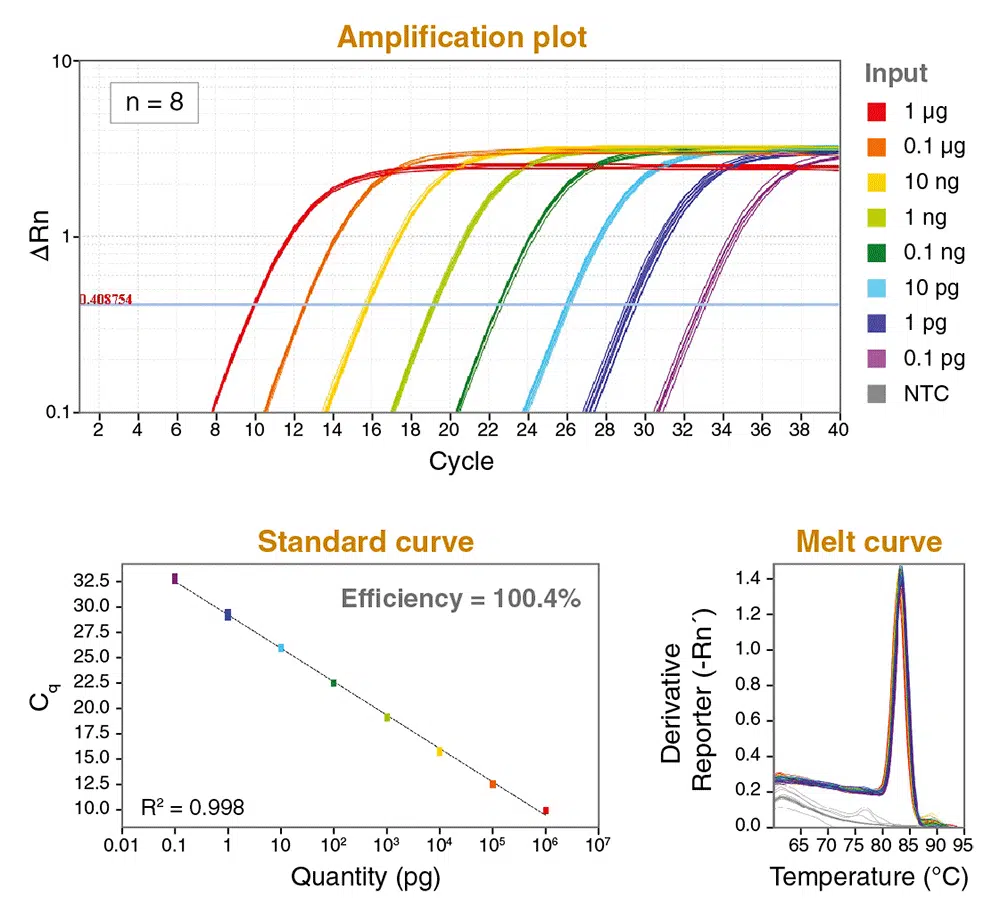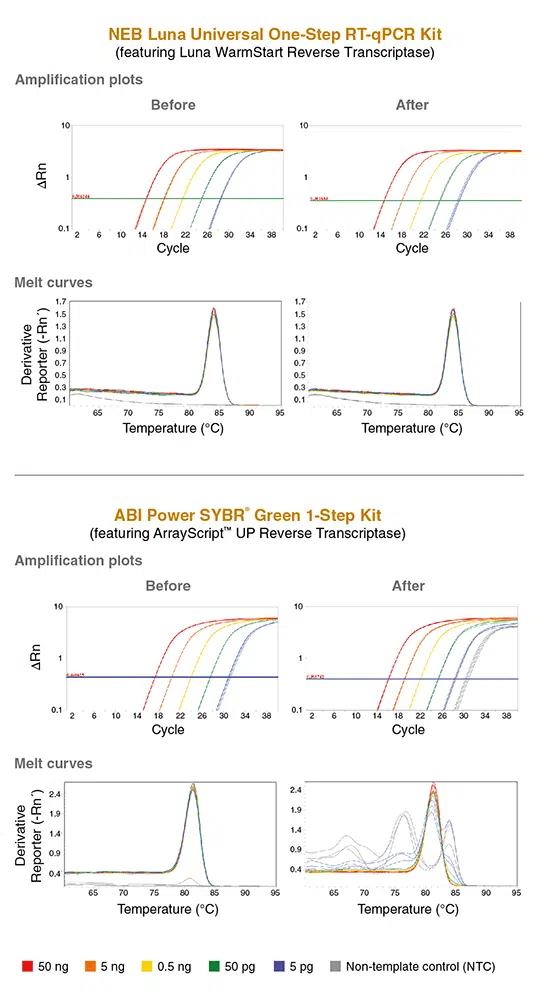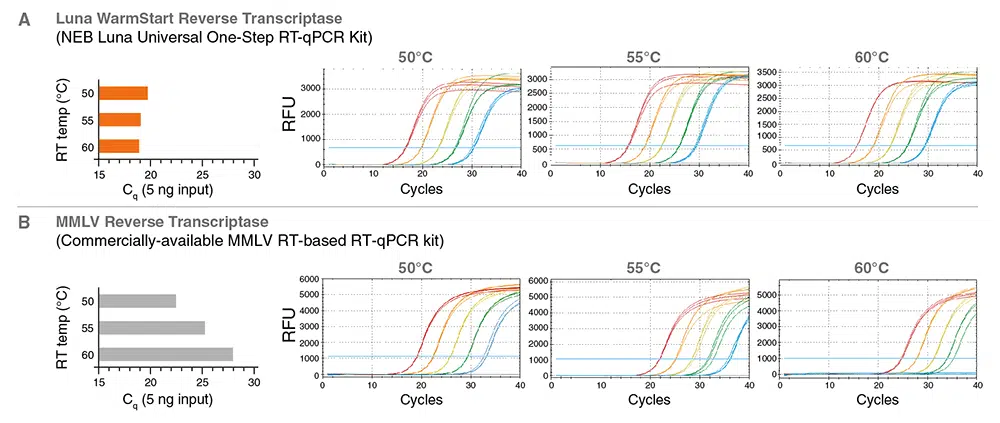The Luna RT-qPCR kits contain a novel, in silico-designed reverse transcriptase (RT) engineered for improved performance. Both the Luna WarmStart Reverse Transcriptase and Hot Start Taq DNA Polymerase, included in these kits, utilize a temperature-sensitive, reversible aptamer, which inhibits activity below 45°C. This enables room temperature reaction setup and prevents undesired non-specific activity. Furthermore, the WarmStart RT has increased thermostability, improving performance at higher reaction temperatures.
Improve performance with our novel, thermostable reverse transcriptase
- Robust RT delivers improved specificity, sensitivity and efficiency
- Increased thermostability adds flexibility to reaction setup and improved specificity
Luna WarmStart Reverse Transcriptase exhibits exceptional sensitivity, reproducibility and RT-qPCR performance
RT-qPCR targeting human GAPDH was performed using the Luna Universal One-Step RT-qPCR Kit, featuring Luna WarmStart Reverse Transcriptase, over an 8-log range of input template concentrations (0.1 pg – 1 μg Jurkat total RNA) with 8 replicates at each concentration. NTC = non-template control.
Achieve better control and better results: WarmStart Luna RT paired with Hot Start Taq
- WarmStart/Hot Start technology ensures tight control and prevents spurious amplification
- Unique WarmStart technology is not available with other non-NEB commercially-available products
WarmStart Luna RT prevents spurious amplification resulting from room-temperature pre-incubation
RT-qPCR targeting human ribosomal protein L32 was performed before and after a 24-hour incubation at room temperature, with triplicate reactions for a 5-log range of input human (Jurkat) total RNA and a non-template control. The Luna Universal One-Step RT-qPCR Kit featuring Luna WarmStart Reverse Transcriptase exhibited robust performance and no detectible non-template amplification, either with or without a 24 hour 25°C pre-incubation, while the ABI 1-Step Kit, featuring a non-WarmStart reverse transcriptase, exhibited significant non-template amplification.
Greater thermostability means greater versatility
- Increased RT reaction temperature is ideal for difficult targets
The increased thermostability of WarmStart Luna Reverse Transcriptase improves performance at increased reaction temperatures
RT-qPCR experiments targeting human ribosomal protein L32 RNA were performed in triplicate over a 5-log range of input human (Jurkat) total RNA (5 pg – 50 ng) using an initial 10 min RT step performed at 50°C – 60°C, as indicated.
A. Luna WarmStart Reverse Transcriptase (recommended incubation temperature: 55°C) exhibited rapid Cq values (bar graph) and robust RT-qPCR performance (amplification plots) at each temperature, indicating that efficient reverse transcription was not perturbed by reaction temperature alterations.
B. In contrast, a commercially available MMLV (recommended incubation temperature: 50°C) exhibited delayed (increased) Cq values, poorer performance, and loss of low-input detection at elevated temperatures, consistent with loss of RT activity.
One or more of these products are covered by patents, trademarks and/or copyrights owned or controlled by New England Biolabs, Inc. For more information, please email busdev@neb.com. The use of these products may require you to obtain additional third party intellectual property rights for certain applications.
SYBR® is a registered trademark of Molecular Probes, Inc.
ARRAYSCRIPT™ is a trademark of Thermo Fisher Scientific,Inc.
Make a Heart and Kidney test of
LUNA qPCR or RT-qPCR in your lab!
One sample is sufficient for 100 reactions.
Click here to expand sample request form
Product table
As of: 03.01.2019
Further information can be found in our Technical Resources section or at neb.com. Information on trademarks can be found here.




